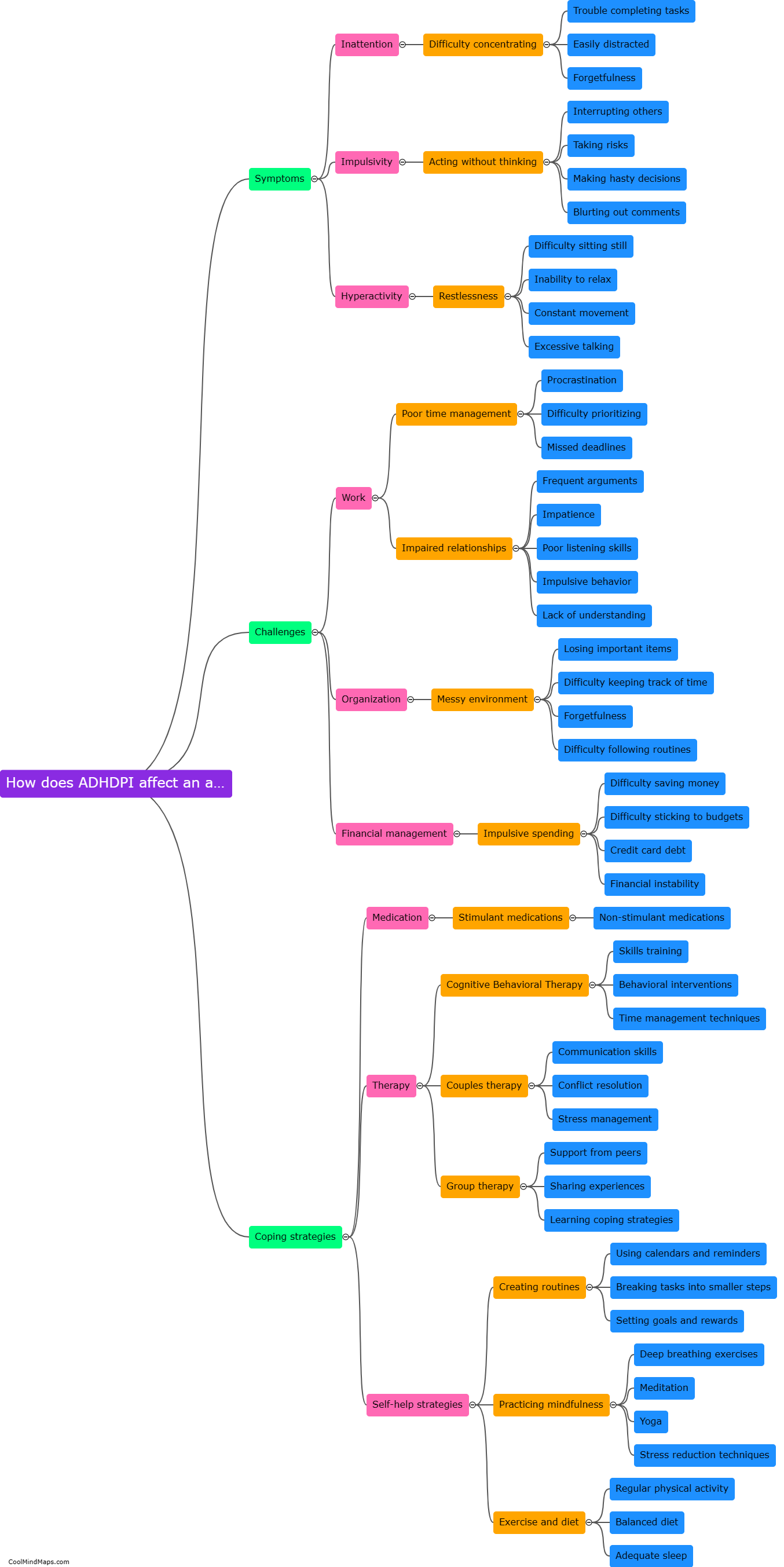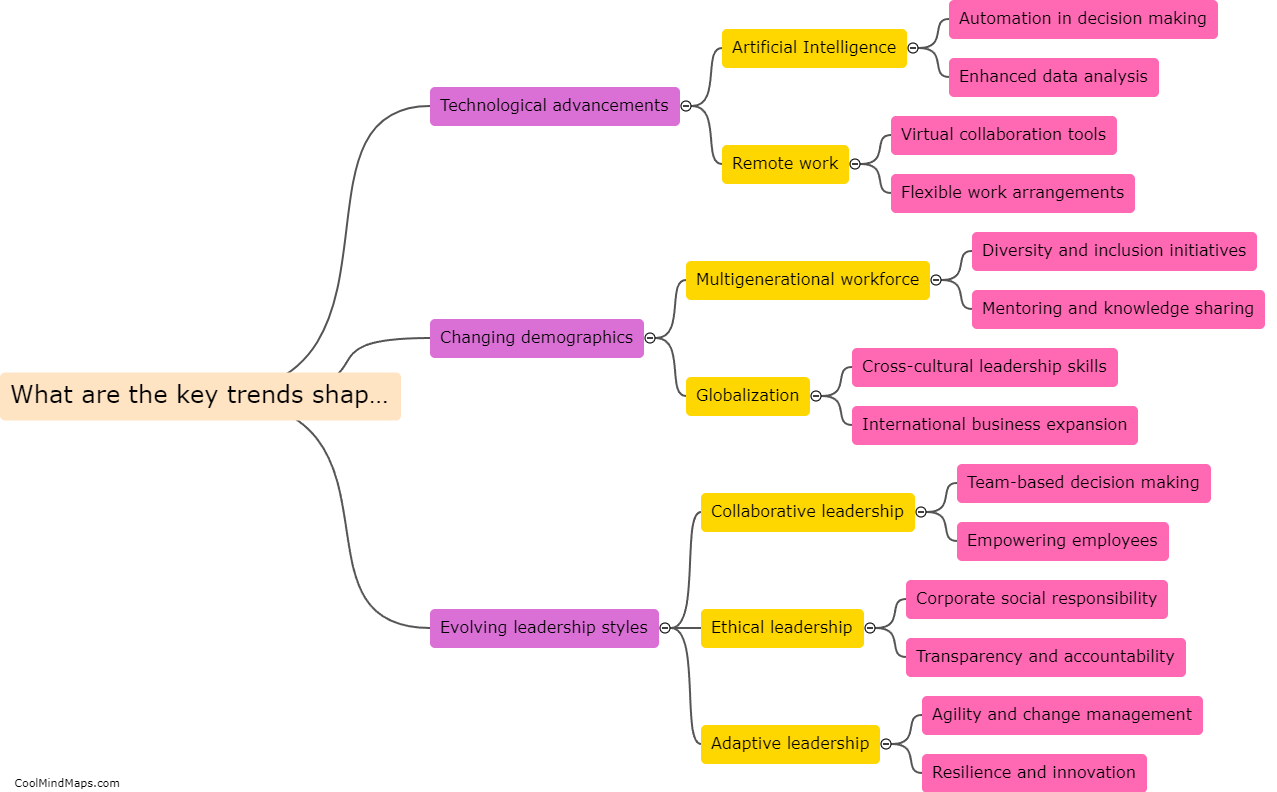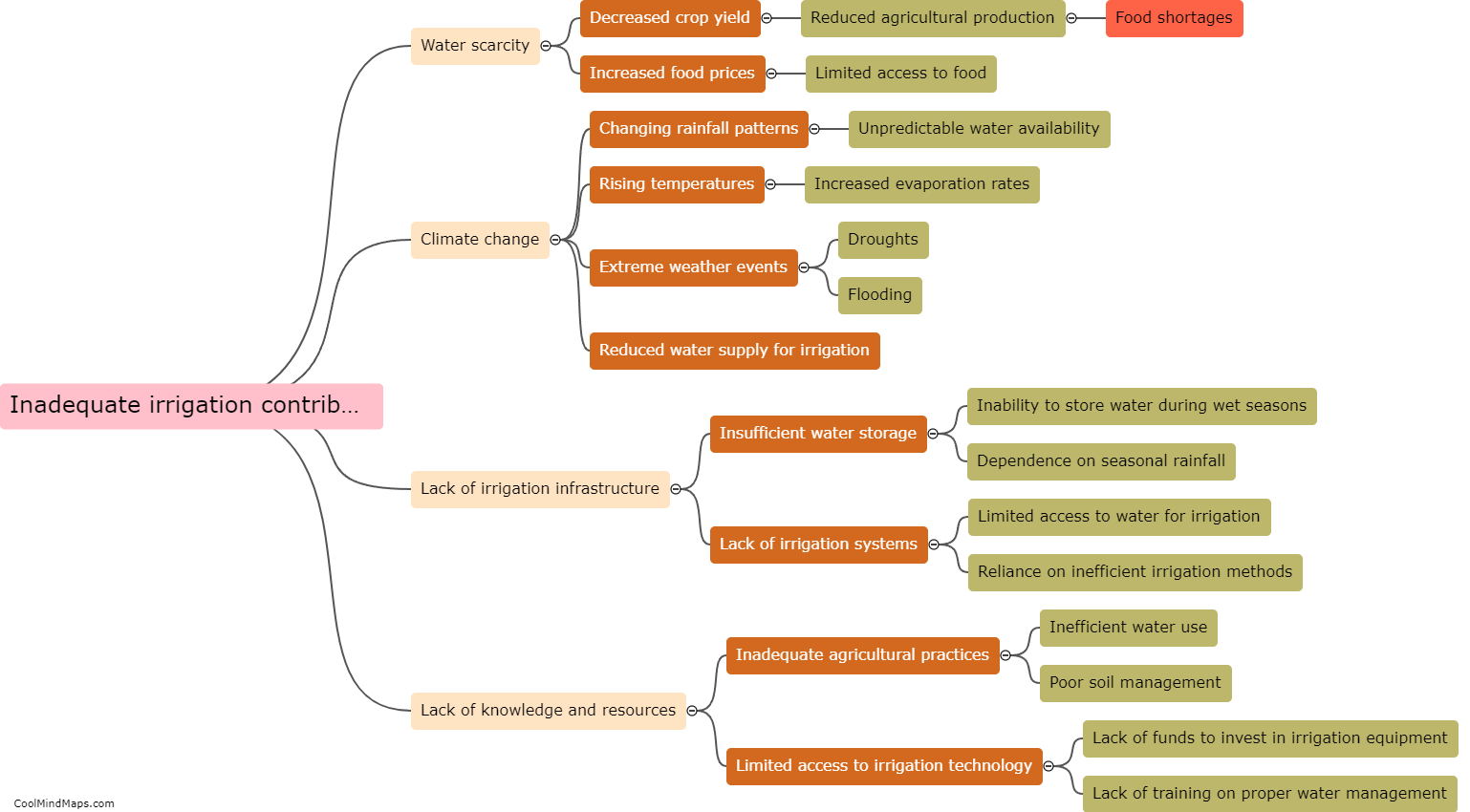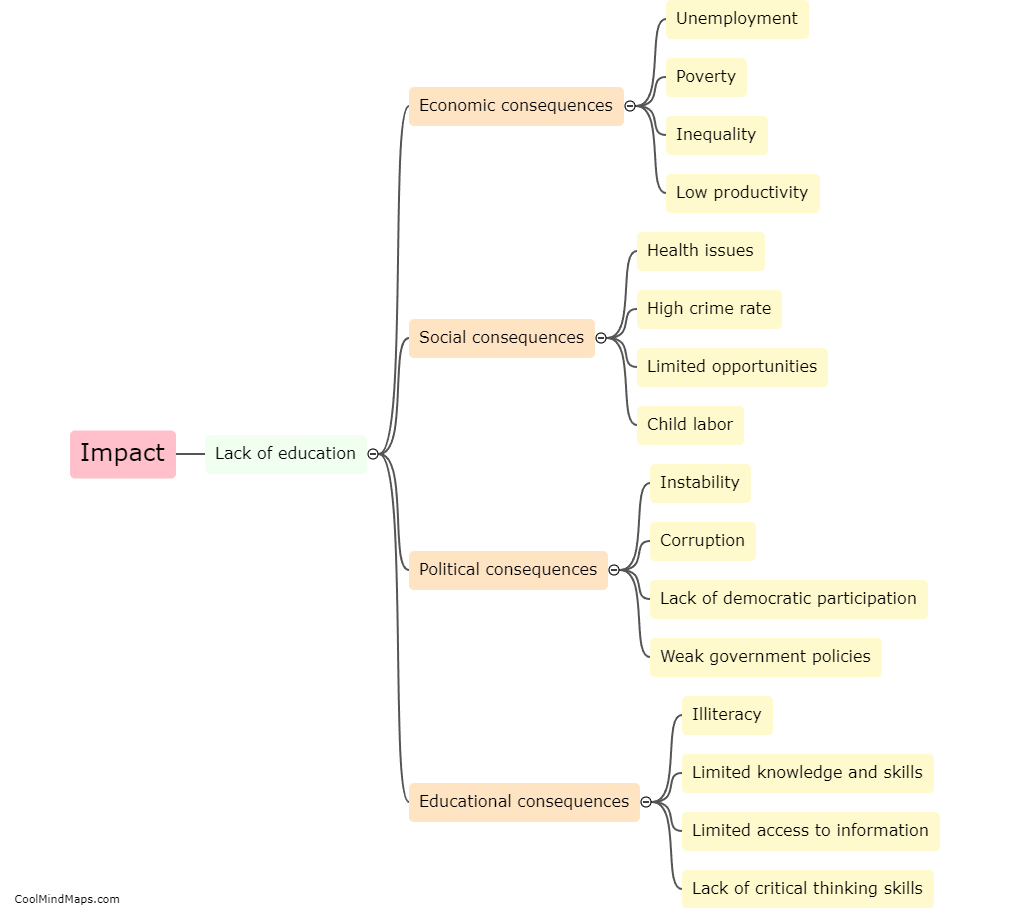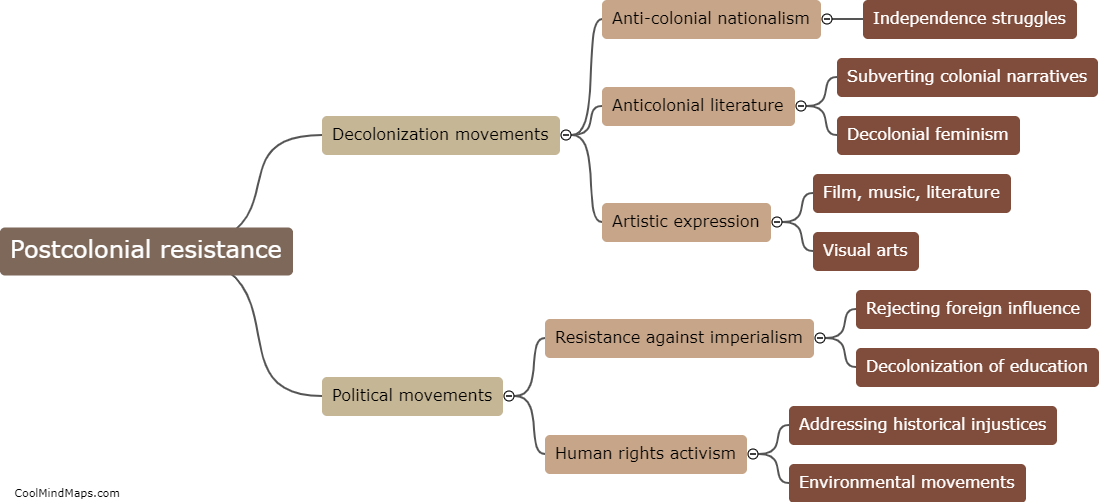How does a lack of education hinder agricultural development in Bolivia?
A lack of education has significant implications for agricultural development in Bolivia. Limited access to quality education creates a barrier for farmers in acquiring modern agricultural practices, knowledge, and skills required for efficient and sustainable farming techniques. This leads to low productivity, inefficient farming practices, and limited innovation in the agricultural sector. Moreover, without proper education, farmers struggle to understand market demands, effectively manage their resources, and adapt to new technologies. The lack of education also limits their access to financial resources and credit, hindering their ability to invest in necessary equipment and infrastructure. Overall, without a well-educated farming population, Bolivia's agricultural sector faces numerous challenges in achieving long-term sustainable growth and development.
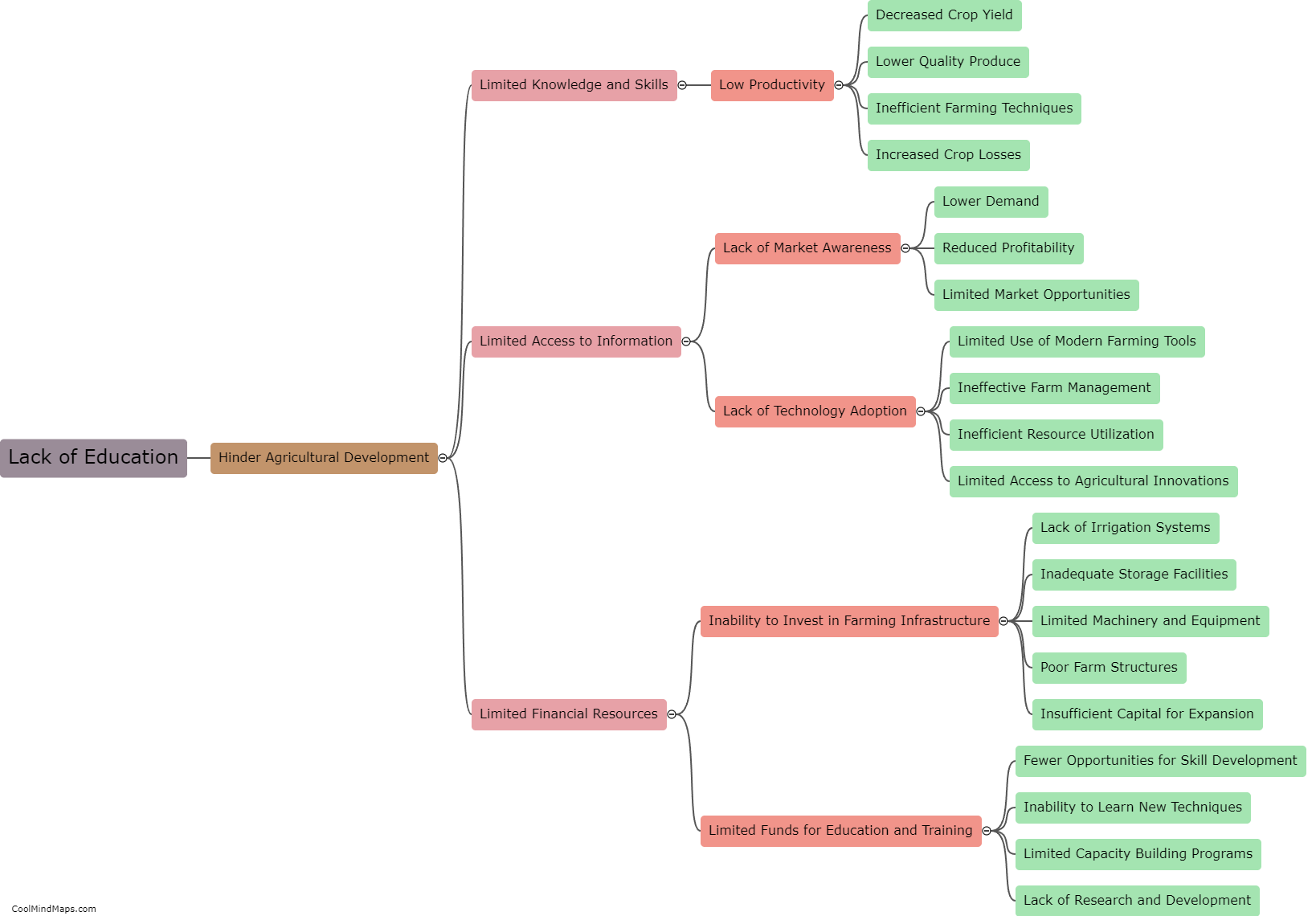
This mind map was published on 1 September 2023 and has been viewed 109 times.

